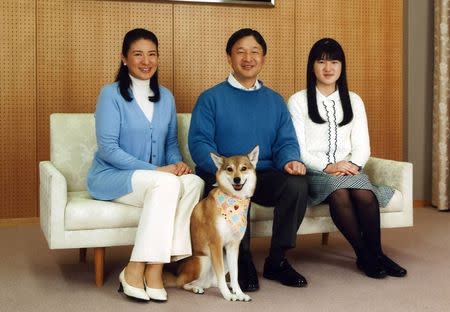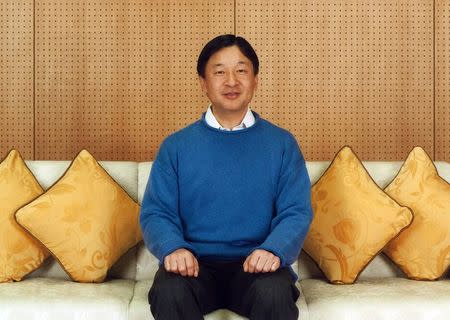Japan Crown Prince urges WW2 past not be forgotten as memories fade
TOKYO (Reuters) - Japanese Crown Prince Naruhito has made a call to remember Japan's wartime past and the horrors of World War Two - remarks that come as Prime Minister Shinzo Abe seeks to recast his country's wartime history in a less apologetic tone. Abe's government has made requests for changes in accounts of wartime history that it sees as incorrect and damaging to Japan's image, sparking criticism from U.S. scholars. "I myself did not experience the war ... but I think that it is important today, when memories of the war are fading, to look back humbly on the past and correctly pass on the tragic experiences and history Japan pursued from the generation which experienced the war to those without direct knowledge," Naruhito told a news conference ahead of his 55th birthday on Monday. He was speaking in response to a question about the 70th anniversary this year of the war's end. Naruhito's grandfather, Emperor Hirohito, was once revered as divine but transformed after Japan's defeat to promote peace and democracy. The royals have no political powers but the current emperor, Akihito, has played an important role in working to heal the wounds of a war waged across Asia in his own father's name. Abe is also planning a statement for the 70th anniversary of the war's end, remarks that will be closely watched by security ally the United States, and by China and South Korea where bitter wartime memories run deep, for any sign he is diluting past apologies. Abe, 60, has said he intends to uphold past government apologies over the war but it is unclear whether the prime minister will himself repeat the "heartfelt apology" contained in landmark 1995 remarks by then-premier Tomiichi Murayama. Taizo Nishimuro, the 79-year-old CEO of Japan Post Holdings Co, who will head up a panel of advisers on the anniversary statement, told a parliamentary committee on Monday he wanted to make a contribution as one who had lived through and remembered the war. Nishimuro also serves as the Japanese co-chair of a committee that advises Japan and China on ways to promote ties. In his birthday remarks, Naruhito also referred to Japan's post-war constitution as the "cornerstone" upon which present-day Japan was built. Abe's conservative agenda includes loosening the limits of the charter and eventually formally revising its pacifist Article 9. (Reporting by Linda Sieg; Editing by Edwina Gibbs)



